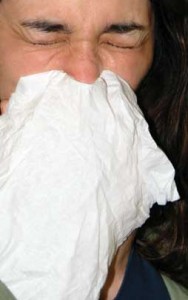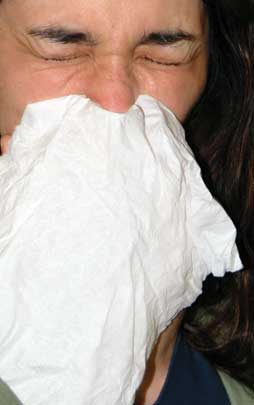By Rylie Parkins/ne news editor

Fevers, congestion, coughing and sneezing—all mean the start of cold and flu season.
While it is important to take the necessary steps, such as hand washing, to prevent getting a cold or the flu, it has become increasingly more important because of a recent outbreak of the Adenovirus, a deadly strain of the common cold.
Adenovirus, or AD14, was first identified in 1955 as a strain of the common cold with symptoms no more severe than conjunctivitis (pink eye) or gastroenteritis.
Adenovirus infections are typically uncommon, and though anyone is potentially at risk for contracting it, children, the elderly and people with weak immune systems are more susceptible to the virus.
However, the new strain that was identified in 2005 has infected many—the young, old, weak and healthy. The virus has mutated from common cold to deadly virus, infecting more than 1,000 people and killing 10 people nationwide.
The four known AD14 outbreaks occurred in New York, Oregon, Washington and Texas. No link has been established between the outbreaks.
Twenty-three percent of patients admitted to an Oregon hospital with severe pneumonia caused by AD14 died.
In an attempt to keep the virus from infecting more people, doctors across the nation are keeping an eye on patients with flu-like symptoms and respiratory illnesses.
FACTS
Even though there have been a large number of outbreaks across the United States, a person runs a much higher risk of catching a common cold or the flu. Some important tips to avoid catching the cold or flu include the following:
Maintain good health.
– Get a cardio workout four-five days a week.
– Drink plenty of water.
– Eat a balanced diet.
– Get adequate sleep.
– Cope adequately with mentally stressful situations.
– Maintain normal humidity levels indoors.
Avoid close encounters with infected people.
– Limit contact with infected people.
– Stand back six feet from infected people.
Avoid picking up cold and flu viruses from contaminated surfaces.
– Don’t touch your lips, teeth, tongue, nose or eyes with your hands as that will inoculate you with organisms.
– Wash hands frequently for a minimum of 30 seconds.
– Use an alcohol-based hand sanitizer to keep hands wet for about one minute.
Sources:
Dr. Elvin Adams, medical director and health authority, Tarrant County Public Health
Veronica Warrior, R.N., SE Campus coordinator of health services
Pat Marling, R.N., NE Campus coordinator of health services, Centers for Disease Control and Prevention

